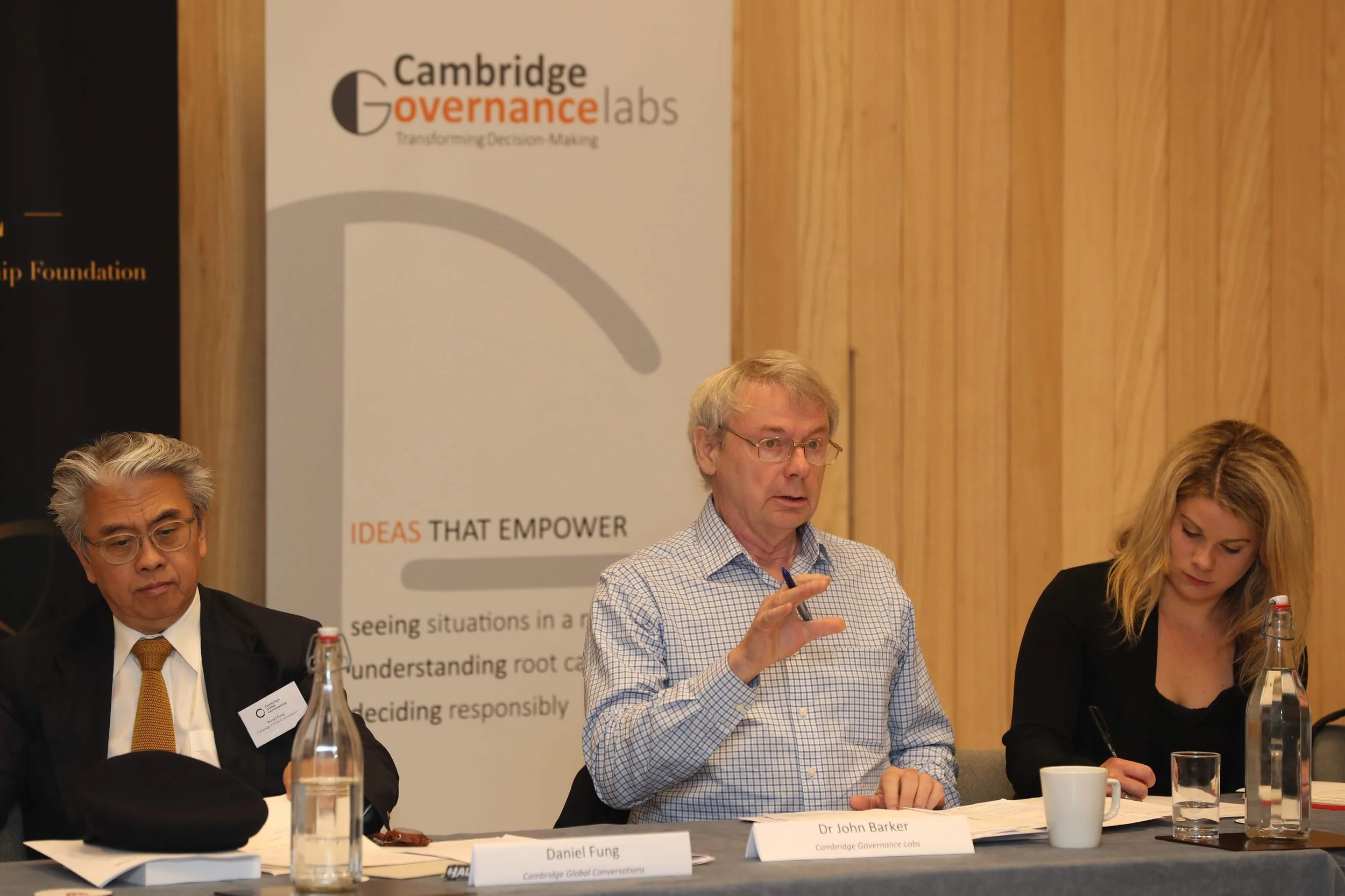
Projects and Research Initiatives
with Real World Impact
“Responding to global threats with practical action.”
Arctic Action: Engagement at COP26, Glasgow, 2021
CGL participated in the UN COP26 Climate Summit in Glasgow, supporting the Global Choices campaign to protect Arctic ice, a crucial climate regulator. “In our efforts to understand the legal vulnerability of Arctic ice and strategies to mobilise the international community, we are enormously indebted to Dr Barker and Cambridge Governance Labs for their research support and practical advice and insights into international legal matters.” Sally Ranney, Co-Founder
“Inquisitive and consultative”
Cambridge Global Conversations (CGC)
CGL was instrumental in establishing an international discussion forum called Cambridge Global Conversations (CGC). Its inaugural initiative was to host a conference on the ethical and governance issues brought to the fore by climate change. The conference, held at the Intellectual Forum at Jesus College in Cambridge, brought together leading experts from around the world in July 2019. One of the products of the conference was a series of video interviews on ethics, governance, natural capital accounting and the vital role of civil society.
“Taking evidence seriously”
Data and Good Governance: strengthening the signal-to-noise ratio
Opinion can a dangerous substitute for knowledge. Humanity’s knowledge base is a fundamental global good that must not be drowned out by the noise of political spin, wishful thinking and disinformation.
CGL has hosted hybrid round table seminars to explore the ways in which decision-making can be better informed by the acquisition of governance-relevant data.
We are developing a dashboard designed to provide decision-makers with access to important indicators, pressure points, trends, available responses and even resources.
Responsible decision-making promotes peace and justice
Conflict and Dispute Resolution
Cambridge Governance Labs has collaborated with the Chartered Institute of Arbitrators (CIArb) to design a support programme to boost training and certification in mediation skills for legal professionals, civil society leaders in Africa.
All societies create sparks. The question is whether those societies have within themselves the means to extinguish those sparks at an early stage so they do not proliferate.
Protection of Young People in South Africa
Responsible decision-making is accountable to citizens
We have partnered with One Million Strong, a South African NGO working with schools in several countries to raise the level of awareness among young people about the risks they face as young adults. CGL developed materials to promote governance, literacy, describing institutions and forces operating in the political and social landscape that shape identity, values, choices and behaviour. We focused, for example, on the relationship between human rights and the obligations of public duty-bearers. We also described the manipulation of ethnic or national identity by political leaders to empower themselves at the expense of citizens, imposing loyalty demands that suppress other natural associations, including global citizenship. This process empowers leaders and disempowers citizens. The purpose and effect of our awareness raising is to shrink the permissive space that citizens unwittingly afford to leaders to abuse the system for personal gain.
Responsible Decision-Making Saves Lives
Access to Medicine
Cambridge Governance Labs hosted a symposium on the use and abuse of intellectual property. This shone a light on how intellectual property rules are circumvented to perpetuate the kind of monopoly pricing that denies citizens access to lifesaving medicines. Techniques such as evergreening, pay for delay, double counting regulatory capture places medicines beyond the reach of many living in the global North as well as in developing countries.
Responsible Decision-Making is a Learned Process
Ethical Governance Training Modules for Senior Government Officials
CGL is supporting colleagues in Africa to design training modules that demonstrate important links between ethical framework in the workplace, motivation, morale and productivity. This strategy enhances the quality of decision-making and builds on proven successes in Malawi that reduced government spending, cut litigation, and reduced complaints to the Office of the Ombudsman.






